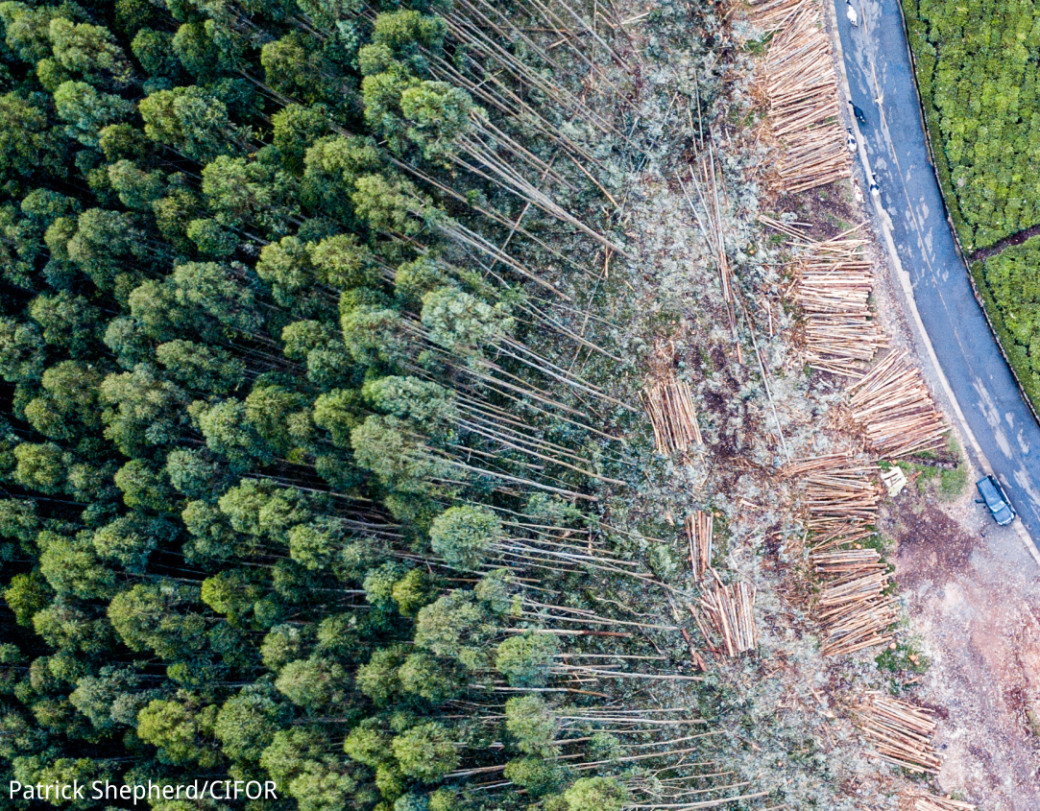Our Nature is Not Your Solution – and FAO’s Plantations are even less of a Solution!

By Ruth Nyambura, Global Forest Coalition (GFC), Kenya
On the 22nd of May each year the world celebrates the International Day of Biological Diversity and this year’s celebrations are significant in that the United Nations had dubbed 2020 a ‘super year’ for nature and biodiversity under the theme Our Solutions are in Nature. As part of this year’s celebrations, the Food and Agriculture Organization (FAO) will be doing a virtual launch to highlight the key findings of its annual forestry series, State of the World’s Forest 2020 Report: Forests, Biodiversity and People (SOFO 2020). The previous yearly reports have had little to celebrate as they showed continuously high deforestation rates, especially in Africa and Latin America. In addition, they have revealed that the commitment made by Heads of State as part of the Sustainable Development Goals to halt deforestation by 2020 will not be met, this year, nor in the near future. A truly devastating reality for the world’s ecosystems and those who depend on them for their livelihoods and socio-cultural practices.
For a long time, GFC and our allies have strongly criticised FAO as it has allowed for ecologically destructive monoculture tree plantations to be defined as “planted forests”. We consider this a deliberate mislabeling that not only allows the tree plantations industry to tap into badly needed and terribly limited climate funds, but also makes it easier to compensate for deforestation with plantation expansion. In addition to the terrible impacts these “forests” have on biodiversity, the consequences for local communities and Indigenous Peoples who often get evicted from their lands to make way for these plantations need to be constantly highlighted as our own work at GFC is committed to doing. Rather than mitigating against the impacts of climate change, these false solutions continue to be responsible for increased emissions and a myriad of human rights violations across the world.
Before the COVID-19 pandemic several high-level events and review processes had been planned for 2020. These events were expected to radically change the global environmental governance landscape. Chief among these meetings were the five-year review meetings on the SDGs and the Post 2030 Agenda for Sustainable Development, the Convention on Biological Diversity Summit (CBD15) to determine the post 2020 Global Biodiversity Framework in Kunming, China, and the UN Framework Convention on Climate Change Summit (COP26) in Glasgow, Scotland.
These ‘super year’ meetings were expected to promote ‘nature-based solutions’ (NBS) which, according to the UN, “…offer the best way to achieve human well-being, tackle climate change and protect our living planet.” Additionally, CBD15 was framed as the next ‘Paris Agreement Moment’ and another fantastic opportunity for the world to strike a ‘New Deal for Nature’.
While these plans sounded laudable, the problem is that climate, biodiversity, agriculture and forest-related agreements have long served as vehicles for corporations, private foundations and developed countries to legitimize the commodification of nature. In the last decade or so, we have witnessed an aggressive push for “solutions” like NBS that seem more focused on increasing the financial gains of extractive, agro-industrial and polluting corporations than actually dealing with the structural causes of the environmental and health crises we presently face. Most of these “solutions” squarely overlook the rights, needs and livelihoods of the Indigenous Peoples, local communities and women that are actually on the forefront of forest conservation.
It is with this context in mind that GFC has launched the campaign #OurNatureIsNotYourSolution and a special issue of Forest Cover. We aim to spotlight the extent to which nature and biodiversity are being privatized and commodified, and which actors are responsible for it. Importantly, we also aim to amplify the voices and regenerative solutions of the Indigenous People, local communities and women on the frontlines of the biodiversity and climate crisis that we now face.
We’re calling on people across the world, our supporters and allies, the United Nations and those on the frontlines of the climate and biodiversity crisis to actively reject false solutions that turn nature into a business opportunity, and to halt the continuing replacement of natural forests by monoculture tree plantations (as described in the FAO State of the World Forests report). We also urge everyone to commit to supporting regenerative practices, championed by local communities, Indigenous Peoples and women, which continue to be our biggest weapons against the many manifestations of these multiple and intersecting crises.
Our Nature is Not Your Solution!










